Social - ENA English
Social
Africa's Health Narrative Radiates Hope and Solidarity, Says Africa CDC Director-General
Feb 27, 2026 683
Addis Ababa, February 27, 2026 (ENA) –Africa's health narrative radiates hope, solidarity, and relentless momentum, Africa CDC Director-General Dr. Jean Kaseya said. During a press briefing on Thursday, the Director-General referenced the 39th AU Summit's emphasis on health sovereignty. Dr. Kaseya on the occasion stressed on visible changes and a strong, unified African perspective that's effectively redefining worldwide health agendas on Africa's own conditions. "We are present now with the accuracy. We clearly say we need to move from dependency to a system that is making us accountable, owning our systems," he elaborated, underscoring the continent's transition from aid dependence to self-reliance. The Director-General introduced the "5P plus" strategy endorsed by African heads of state. This encompasses overhauls to international health structures, Pandemic Prevention, Preparedness, and Response (PPPR) deeply integrated into Africa's core, reliable local funding with Equatorial Guinea's ambitious commitments standing out, digital advancements led by Ethiopia, and local production capabilities, capped by a forthcoming special summit. He also celebrated Africa CDC's achievements since 2023, noting that the center has managed to move from 34 percent to 95 percent, the highest utilization rate in the AU. "We have managed to bring internal funding from 52 million to 463 million. It means Africa's CDC today is a world-class organization making things moving." Despite global layoffs, human resources thrived, hitting 85.5 percent of targets early as surveillance shifted from 2022’s red spots to 2025’s green zones, expanding operations centers to 32 and establishing genomic labs continent-wide, he elaborated. Outbreaks plummeted to 89 in early 2025, compared to far more undetected cases before, validating resilience efforts. According to him, Ethiopia leads in digital health and AI while a new committee of 70 African leaders prepares to champion equitable global partnerships. Dr. Kaseya stated that while Africa faces formidable health hurdles—from Mpox and cholera spikes in flood-ravaged regions to carrying 95 percent of the global malaria burden—resilience prevails through Uganda’s swift vaccinations, declining Mpox cases, and significant diagnostic advancements led by Equatorial Guinea and Ethiopia.
Mother Language Day Vital for Inclusive Multilingual Education
Feb 25, 2026 2103
Addis Ababa, February 25, 2026 – Stakeholders commemorating International Mother Language Day highlighted its crucial role in advancing inclusive multilingual education. The United Nations Economic Commission for Africa (UNECA), in partnership with the United Nations Educational, Scientific and Cultural Organization (UNESCO) and the Embassy of Bangladesh, marked the day today in Addis Ababa. Officials emphasized that mother tongue education is central to promoting sustainable development, social inclusion, and equitable access to learning. Representatives from UNECA, UNESCO, and the Bangladesh Embassy underscored that linguistic diversity is not only a cultural treasure but also a foundation for equitable education, digital inclusion, and long-term economic growth. Opening the event, Aboubakir Diaw, Chief of Staff representing the Executive Secretary of UNECA, said languages carry far deeper significance than mere communication. “Languages are not merely tools of communication. They shape cognition, structure belonging, and transmit collective memory across generations,” he stated. Diaw described Africa’s more than 2,000 languages as strategic assets rather than sources of division. He stressed that multilingual education rooted in mother tongues strengthens human capital and social cohesion. “Multilingual education, grounded in mother tongues, is therefore not a cultural luxury. It is a strategic investment in human capital,” he said. He also cautioned that the rapid expansion of artificial intelligence and digital platforms poses risks for languages lacking digital representation. “In the age of artificial intelligence, languages absent from digital representation risk economic and cultural obsolescence,” Diaw warned. With nearly 60 percent of Africa’s population under the age of 25, he highlighted the importance of empowering youth through inclusive language policies, linking the issue to continental initiatives such as the African Continental Free Trade Area and the 2030 Agenda for Sustainable Development. Rita Bissoomath, Liaison Director at UNESCO, echoed this view, describing languages as “the living guardians of our identity, the vessels of our culture.” She noted global disparities in access to education in familiar languages, citing that 40 percent of the world’s population does not receive instruction in a language they fully understand—a gap that deepens inequality and marginalization. “Promoting multilingualism is a key instrument for fostering peace, tolerance, and mutual respect,” Bissoomath said, calling languages irreplaceable human treasures. She urged governments and institutions to take concrete action. “Let us commit to integrating mother tongues at every level of our educational systems. No child should feel alienated from their linguistic heritage,” she stressed. Ambassador of Bangladesh Air Vice Marshal Sitwat Nayeem connected the commemoration to his country’s 1952 Language Movement, whose sacrifices inspired the international recognition of the day. “Language shapes us from the moment we are born. It is our primary means of self-expression,” he said. Recalling the struggle against the imposition of Urdu that contributed to the birth of Bangladesh, he highlighted the movement’s enduring relevance. “Preserving linguistic and cultural diversity is not just a cultural duty, it is essential for mutual understanding, dialogue, and cooperation toward a peaceful international order,” the ambassador emphasized. Participants concluded that protecting and promoting mother tongues strengthens dignity, supports youth development, and lays the foundation for peace, equity, and innovation across societies.
Adwa Victory Vividly Shows Ethiopia as Beacon of Freedom: Defense Minister
Feb 24, 2026 1936
Addis Ababa, February 24, 2026 (ENA) –Adwa Victory will be celebrated with the spirit of Pan-Africanism, demonstrating Ethiopia's role as a beacon of freedom for black people worldwide, Defense Minister Aisha Mohammed said. The 130th Adwa Victory Day will be celebrated under the theme "Glorious Past, Radiant Horizon" on March 2, 2026. Briefing the media on the anniversary today, the Minister stated that preparations have been finalized to celebrate the historic victory day. The Victory of Adwa was not merely a military triumph of a specific era, but a symbol of the invincible Ethiopian identity and a beacon of freedom for black people, she noted. For the minister, the 130th anniversary will be marked by demonstrating its historic role for the independence of Africans and the whole black people who were under colonial powers. Furthermore, she underscored that celebrating the day is a unique opportunity to renew the core of Ethiopian steadfastness towards achieving its long-term goals in all spheres. Citing that Adwa was a collective victory, the defense minister said it was a moment when Ethiopians stood together for a one sovereign nation, undivided by race, color, or religion. According to her, the heroic National Defense Force, carrying the legacy and courage of Adwa, stands ready to ensure the peace and security of the country. Various events have been organized to celebrate the historic day colorfully, including youth forums, sporting competitions, artistic works, and various exhibitions, it was learned. Adwa Victory Day marks Ethiopia’s historic victory, representing a monumental triumph for African sovereignty, black pride, and anti-colonial resistance worldwide. It was the first decisive defeat of a European power by African troops, cementing Ethiopia as a beacon of independence and unity which remains a symbol of African resistance and unity.
Nelson Mandela Memorial Museum Inaugurated in Addis Ababa
Feb 24, 2026 41044
Addis Ababa, February 24, 2026 (ENA) - Nelson Mandela Memorial Museum was inaugurated today in Addis Ababa in the presence of senior government officials, diplomats, and invited guests, commemorating the life and enduring legacy of South Africa’s anti-apartheid icon, Nelson Mandela. The museum showcases Mandela’s historic ties with Ethiopia, highlighting the period during which he received military and political training in the country as part of broader efforts to dismantle apartheid-era systems in South Africa. Mandela traveled to Ethiopia, seeking support for the liberation struggle led by the African National Congress (ANC). He is widely celebrated for his leadership in South Africa’s struggle against apartheid and later as the country’s first democratically elected president, spent time in Ethiopia where he underwent political orientation and military training. The experience significantly contributed to strengthening anti-apartheid efforts in his homeland and deepened continental solidarity against colonialism and racial oppression. The museum reflects the historic solidarity between the Ethiopian and South African peoples in their shared quest for freedom, justice, and human dignity. Officials at the inauguration emphasized that the facility will serve not only as a historical archive but also shows the role Ethiopia played for African independence They further said that the museum as a center for education and inspiration for future generations committed to Pan-African unity and the ideals of equality and self-determination. Ethiopia’s played longstanding role in supporting African liberation movements. As one of the few African countries that resisted colonial rule and maintained its sovereignty, it provided moral, political, and in some cases material support to various liberation fronts across the continent.
Ethiopia's Robust Regulatory Framework Vital Cornerstone for Africa’s Health Sovereignty: AMA
Feb 21, 2026 1661
Addis Ababa, February 21, 2026 (ENA) –Ethiopia’s robust regulatory framework positions the nation as a vital cornerstone for Africa’s transformative regional health sovereignty, African Medicines Agency (AMA) Director-General Dr. Delese Mimi Darko said. In an exclusive interview with the Ethiopian News Agency (ENA), the Director-General applauded the Ethiopian Food and Drug Authority for achieving WHO Maturity Level 3, a prestigious designation that marks the agency as a stable, well-functioning, and internationally recognized body. Ethiopia is on a good ground because you have a good regulatory agency, she said, adding that once your regulator is strong, the regulator will ensure that you have good practice. According to Dr. Darko, Ethiopia is very lucky to have a drug authority that is WHO Maturity Level 3. The drug authority can support the industry to ensure they manufacture in accordance with good manufacturing practices and that good quality products come out, she stated. The Director-General emphasized that such domestic strength is decisive for reversing Africa’s heavy dependance on foreign imports, noting that the continent currently imports over 70 percent of its medical products and manufactures a mere 1-2 percent of its vaccines. Dr. Darko framed this change as a matter of "health sovereignty," ensuring that in times of pandemic or emergency, Africa is no longer at the compassion of global supply chains. "Africa wants to get to the point where it manufactures its own medical products for its continent," the Director-General said, adding that the African Medicines Agency will make sure that we put the right system so that nobody says that Africa manufactured a product that is not good. To realize this, the agency is championing a one-harmonized system designed to eradicate the bureaucratic hurdles of navigating 55 different member states, she revealed. Dr. Darko said that the agency's primary mission is to streamline the pathway for investors by centralizing approval and authorization processes. "We want to make it painless for investment. If we have that one harmonized pathway, then investors are more likely to want to invest in Africa." By enhancing the capabilities of the continent's 9 established regulatory agencies, the AMA intends to establish a cohesive, top-tier environment in which safe and high-quality medical products become the standard in Africa. The African Medicines Agency (AMA) is a specialized agency of the African Union (AU) established to harmonize medical product regulation across the continent, ensuring access to safe, effective, and high-quality medicines. Headquartered in Kigali, Rwanda, it aims to reduce regulatory fragmentation, fight counterfeit products, and streamline clinical trials.
Africa CDC Advisor Applauds Ethiopia’s Exemplary Triumph Over Marburg
Feb 20, 2026 1445
Addis Ababa, 20 February 2026 —The Principal Advisor for Programmes Management at the Africa Centres for Disease Control and Prevention (Africa CDC), Ngashi Ngongo has lauded Ethiopia’s swift and decisive containment of the Marburg Virus Disease as a testament to the nation’s burgeoning health sovereignty and resilient medical infrastructure. Speaking to ENA, Dr. Ngashi Ngongo, Principal Advisor for Programmes Management at Africa CDC, praised the government’s decisive leadership and coordinated national response, which brought the outbreak under control within a short period. “Ethiopia has demonstrated strong leadership and an organized response that enabled the country to contain Marburg swiftly. This is a showcase of a resilient health system,” he said. On January 26, 2026, the Ethiopian Ministry of Health officially announced that Marburg Virus Disease had been eradicated from the country’s borders, marking a significant milestone in Ethiopia’s public health efforts. Dr. Ngongo congratulated the Government of Ethiopia, noting that the response to the outbreak was immediate, well structured, and grounded in prior experience managing public health emergencies. According to him, Ethiopia’s handling of the virus provides valuable lessons for other African countries on managing health crises without causing major social and economic disruption. He highlighted the central role of the Ethiopian Public Health Institute in coordinating surveillance, laboratory testing, and response operations. The institute, he said, effectively applied its expertise while identifying gaps to further strengthen preparedness for future outbreaks. “There are important lessons to draw from Ethiopia’s experience, particularly in strengthening surveillance systems to ensure cases are detected early,” Ngongo noted. He added that the expansion of the health extension program has been critical in enabling surveillance to begin at the community level and flow through the entire system. Ethiopia’s decentralized laboratory capacity also played a decisive role, allowing rapid detection and response. Well distributed laboratories across the country helped identify cases promptly and support immediate intervention, he explained. On Africa CDC’s collaboration during the outbreak, Dr. Ngongo said the continental body provided technical assistance, deployed experts, reinforced laboratory systems, and supplied essential reagents. “We are in Ethiopia and Ethiopia is our priority,” he said. “There is no doubt about the commitment to support the country.” He further emphasized the broader continental push to strengthen Africa’s health sovereignty. “Health sovereignty is no longer an option. It has become a necessity,” he stressed, underscoring the need for African nations to rely more on domestic resources to build sustainable and reliable health systems. The remarks come as health and finance leaders recently convened in Addis Ababa for a high-level forum focused on advancing Africa’s health security and strengthening collaboration between the health and finance sectors to build self-reliant systems across the continent.
ENDC Calls for Full Public Engagement as Process Enters Crucial Phase
Feb 18, 2026 1275
Addis Ababa, February 18, 2026 (ENA) – The Ethiopian National Dialogue Commission (ENDC) has urged the public to fully engage in the dialogue as the process reached at a crucial phase. In an exclusive interview with ENA, ENDC Chief Commissioner Professor Mesfin Araya has urged all Ethiopians to take an active role in ensuring the success of the country’s National Dialogue. He affirmed that the process has already reached at a decisive stage and the National Dialogue aims to strengthen unity through respectful and inclusive discussions on key national issues. According to the Chief Commissioner, broad participation is essential to guarantee meaningful and lasting outcomes from the national dialogue. In an exclusive interview with the Ethiopian News Agency, Professor Mesfin said millions of Ethiopians have already taken part in sessions organized to nominate representatives and identify priority agenda items for deliberation. The Commission has conducted extensive consultations across regional states, city administrations, federal institutions and diaspora communities to facilitate the engagement, he said. The process, he noted, has been designed to ensure openness and inclusivity. “With the exception of Tigray, consultations have been successfully conducted across regional states, city administrations, federal offices and among diaspora communities,” he said. Professor Mesfin also praised the active involvement of Ethiopians living abroad, noting that diaspora participants have submitted critical issues they believe are central to the nation’s future. He emphasized that the collective effort demonstrated so far is vital as the dialogue advances to its next phases. “The success of the National Dialogue depends on the active engagement of every Ethiopian,” he said, adding that broad participation will help produce outcomes that reflect the country’s diverse perspectives. The Chief Commissioner further urged citizens to maintain the momentum, stressing that sustained and universal involvement will lay the foundation for a stable, consensus-based path forward.
Turkish President Erdoğan Lays Wreath at Adwa Victory Memorial in Addis Ababa
Feb 17, 2026 2570
Addis Ababa, February 17, 2026 (ENA)—Türkiye President Recep Tayyip Erdoğan laid Wreath at the Adwa Victory Memorial in honor of Ethiopia’s fallen heroes after grand reception at the National Palace in Addis Ababa. The memorial commemorates the historic Battle of Adwa, where Ethiopian forces decisively defeated invading colonial army in 1896 — a landmark victory that secured the country’s sovereignty and became a symbol of African resistance and dignity. The wreath-laying ceremony underscored the respect accorded to Ethiopia’s history and its enduring legacy as a symbol of independence for the African continent. President Erdoğan arrived in Addis Ababa earlier today for an official working visit to Ethiopia, where he was accorded an exceptional reception by Prime Minister Abiy Ahmed at Addis Ababa Bole International Airport. Upon his arrival, President Erdoğan was welcomed with full state honors reflecting the steadily deepening ties between Ethiopia and Türkiye. Prime Minister Abiy personally received the Turkish leader at the foot of the aircraft, underscoring the strong diplomatic bond and mutual respect between the two nations. As President Erdoğan proceeded to the National Palace for official engagements, a ceremonial cavalry of horsemen accompanied his motorcade, adding splendor and cultural symbolism to the visit. The grand reception in Addis Ababa mirrors the memorable visit Prime Minister Abiy paid to Türkiye a few years ago, when he was welcomed with remarkable fanfare in Ankara and Istanbul. During that visit, President Erdoğan personally received the Ethiopian leader with full honors, symbolizing the elevation of bilateral ties to a strategic level and paving the way for expanded cooperation in trade, investment, infrastructure, and defense collaboration. Türkiye and Ethiopia this year mark 100 years of diplomatic relations, a partnership that has steadily grown across political, economic, and cultural spheres. Notably, Ethiopia hosts Türkiye’s first embassy established in Africa, reflecting the historical depth of ties between the two nations. The symbolic act, extended only to select heads of state with whom Ethiopia shares deep historical and strategic ties, highlights the exceptional nature of the relationship between Addis Ababa and Ankara. Several high-level Ethiopian government officials, including senior cabinet members, military leaders, and diplomats, were present at the airport to welcome the visiting head of state. Shortly after the arrival ceremony, Prime Minister Abiy took to social media to express his sentiments regarding the visit. “It is my greatest pleasure to warmly welcome H.E. President Recep Tayyip Erdoğan of the Republic of Türkiye to the Land of Origins on his official visit. Our exchange of visits reflects the strength of the deep partnership between Türkiye and Ethiopia. From Ankara to Addis Ababa, I look forward to productive discussions that will further deepen cooperation and strengthen the enduring bonds between our two ancient nations,” the Prime Minister wrote. The visit is regarded as a significant milestone in further consolidating Ethiopia–Türkiye relations as the two nations celebrate a century of diplomatic engagement.
AMA Urges All 55 AU Member States to Ratify Treaty, Calls for Stronger Political Backing
Feb 15, 2026 1509
Addis Ababa, February 15, 2026 (ENA)—African leaders have called on all 55 African Union (AU) member states to ratify the treaty establishing the African Medicines Agency (AMA), stressing that full political commitment and sustained funding are crucial to secure safe, quality medicines across the continent. Meeting in Addis Ababa, leaders underscored that while 31 countries have ratified the treaty, broader participation is essential for the agency to operate at full continental scale. AMA Director-General Dr. Delese Mimi Darko emphasized the urgency of political support and financial contributions, noting that fewer than 35 ratifications would limit the agency’s reach. She stressed that AMA’s vision is to ensure Africans have timely access to safe, effective and quality-assured medical products. The agency seeks to harmonize regulatory systems, strengthen oversight of clinical trials, enhance market surveillance, and support local pharmaceutical manufacturing — a move seen as critical to reducing dependency on external suppliers. AU Special Envoy for AMA Michel Sidibé described the current ratifications as a major milestone but stressed that implementation must follow signatures. He warned that reliance on external regulatory systems exposes the continent to risks and delays, calling AMA a cornerstone for Africa’s regulatory sovereignty and health security. Leaders pledged to intensify diplomatic efforts to secure universal ratification, accelerate operationalization of the agency, and strengthen Africa’s capacity to respond to future health emergencies.
African Ministers Call for Health Financing Sovereignty to Build Resilient Systems
Feb 13, 2026 1817
Addis Ababa, February 13, 2026 (ENA)—African Ministers and health officials have called for urgent action to secure financial health sovereignty as a foundation for building resilient health systems across the continent. The call was made during a High-Level Event on Advancing Africa’s Health Security Sovereignty, which focused on strengthening collaboration between finance and health leadership. The event was co-hosted by the Africa Centre for Disease Control and Prevention, the African Development Bank Group and the African Union Development Agency. Ministers of Health and Finance from across Africa attended the meeting to explore ways of enhancing domestic health financing and reducing dependency on external support. Speaking at the event, Ethiopia’s Minister of Health and Deputy Chair of the Africa CDC Board, Dr. Mekdes Daba, said the continent is operating in a rapidly shifting global landscape marked by recurrent outbreaks, evolving geopolitical realities and declining external assistance. She noted that these changes have exposed the risks of over reliance on external systems. Building consolidated continental capacity, she said, is not merely an institutional ambition but a strategic necessity. “Strengthened regional collaboration, sustained country level investment, technical capacity, strong governance and greater self-reliance are the aspirations we must collectively pursue,” she said. Director General of Africa CDC, Dr. Jean Kaseya, stressed that Africa must take ownership of its health agenda. “Africa must define its own health priorities, lead its own solutions and finance its own resilience from within,” he said. According to him, Africa Health Security and Sovereignty represent a unifying vision that reframes health not as a social sector expense but as a pillar of continental sovereignty, economic resilience and geopolitical credibility. “Africa's health security is inseparable from its economic future and global standing,” he underscored. Dr. Kaseya further emphasized the need to address inefficiencies in existing spending. “Africa's path out of aid dependency will not be found by chasing more money, but by stopping the massive inefficiencies and waste in the money it already has,” he stressed. Chief Executive Officer of AUDA NEPAD, Nardos Bekele, said sustainable health financing requires structural reform and deliberate mobilization of blended investments to complement diverse domestic resources while reducing reliance on external funding. “Health sovereignty can no longer be a slogan. It must become our financing strategy,” she affirmed, noting that investments in health should be viewed as core economic strategy rather than consumptive expenditure. President of the African Development Bank Group, Sidi Ould Tah, said the Bank is advancing a new African financial architecture that moves beyond traditional debt limitations. He highlighted the deployment of innovative financial instruments and risk mitigation mechanisms to attract private sector investment and treat health as a productive social investment. “We need to mobilize the resources required to close our funding gap and reduce out of pocket expenditure for our citizens,” he underlined. Participants agreed that strengthening domestic health financing is central to securing Africa’s long term economic stability and resilience.
Ethiopia's Experience Shows Countries Can Make Progress in Child Survival, Nutrition Outcomes, Says AU Nutrition Champion
Feb 12, 2026 8835
Addis Ababa, February 12, 2026 (ENA)--Ethiopia's experience shows that with strong political will, sustained investment, community engagement and strategic partnerships, countries can make measurable progress in child survival, anemia reduction and overall nutrition outcomes, even in resource constrained settings, King Letsie III of Lesotho and African Union Nutrition Champion said today. He made the remark, following a visit to Zewditu Memorial Hospital in Addis Ababa, where the King observed Ethiopia’s integrated approach to maternal and child health. These are deliberate national efforts to break the intergenerational cycle of malnutrition, he stated, adding that "as the African Union champion for nutrition, I am convinced that what I have seen here today is a model worthy of emulation across the length and breadth of our continent." The King emphasized that Ethiopia’s progress — achieved through community-based health insurance and technology-backed systems, demonstrates that measurable gains in child survival and anemia reduction are possible even in resource-constrained settings when backed by strong political will. For her part, Ethiopia's Health Minister Mekdes Daba highlighted that the government’s dedication has led to a significant decline in maternal and infant mortality. She attributed the success to a robust network of over 40,000 health extension workers who ensure quality service delivery in both urban and rural communities. "This visit is about showing a commitment at the government level," Mekdes stated. "The determination is only deliberate when we have professionals on the ground... we have exemplary works in our hospitals and across every region of our country." Joel Spicer, President and CEO of Nutrition International, underscored the urgency of Ethiopia’s mission, noting that of the 30 million children projected to die from preventable causes globally in the next five years, 18 million are in Africa. He commended Ethiopia’s comprehensive strategy, which spans from schools to maternal care. "Ethiopia has the courage and the vision and the leadership, and those are three very important Ingredients if we are going to save children from dying, they are integrating new interventions." The nation is integrating new interventions, such as double-fortified salt and taking more agency on Vitamin A. That’s wonderful, he added. The visit coincides with the 48th Ordinary Session of the AU Executive Council, held under the theme of ensuring sustainable water and sanitation to achieve Agenda 2063 goals.
Civil Society Council Vows Expanded Engagement as National Dialogue Reaches Pivotal Stage
Feb 9, 2026 1914
Addis Ababa, February 9, 2026 (ENA)— The Ethiopian Civil Society Organizations Council has pledged to step up its engagement to help ensure the success of Ethiopia’s National Dialogue, saying the consultation process has entered a critical and decisive phase. The Council said it is working closely with the Ethiopian National Dialogue Commission to support consultations aimed at building national consensus by narrowing differences on key political and social issues. The Ethiopian National Dialogue Commission was established by the House of People’s Representatives under Proclamation No. 1265/2022 as an independent body mandated to facilitate an inclusive, nationwide dialogue. The Commission has so far conducted agenda gathering and participant identification in eleven regions and two city administrations. Speaking to the Ethiopian News Agency, President of the Civil Society Organizations Council, Ahmed Hussein, said the Council has been mobilizing civil society organizations to play a meaningful and structured role in the process. “We have been working to ensure that civil society organizations contribute significantly to the national consultation,” Ahmed said. He explained that civil society groups are actively engaged in public awareness creation, agenda setting and the recruitment of participants in coordination with the National Dialogue Commission. Ahmed noted that cooperation between the two institutions has been formalized through a memorandum of understanding, which has enabled joint activities to be implemented. “Based on the agreement, many joint activities are being implemented,” he said. According to Ahmed, the inclusiveness of the consultation is being demonstrated in practice. He said women, youth, persons with disabilities, elders and scholars are participating alongside broader public involvement across regions. He added that as the consultation moves into a more sensitive phase, the Council plans to further strengthen its contribution to help guarantee a successful outcome. “The national consultation is a major opportunity to move away from resolving differences through force and towards a political culture guided by dialogue and the power of ideas,” Ahmed said. He also underscored the wider importance of the process, noting that the consultation lays a foundation for state building by enabling citizens to freely deliberate on national issues. Ethiopia’s National Dialogue is part of a broader effort to address long standing political and social divisions through inclusive discussion rather than confrontation. Launched amid ongoing reforms and post conflict recovery efforts, the process seeks to build a shared national understanding on core political, social and governance questions by engaging citizens across regions and social groups. Civil society organizations have been identified as key actors in this effort due to their grassroots presence and experience in community mobilization. The renewed commitment by the Civil Society Organizations Council comes as agenda consolidation and participant engagement advance toward substantive deliberations, making coordination, inclusiveness and public trust central to the credibility and eventual outcomes of the national consultation.
Ethiopia Acts on Water Sustainability Commitments: Minister Habtamu Itefa
Feb 9, 2026 2686
Addis Ababa, February 9, 2026 (ENA)—Ethiopia is backing continental water sustainability efforts with concrete action rather than rhetoric in line with Africa’s long term development goals, Minister of Water and Energy Habtamu Itefa said. The African Union Economic, Social and Cultural Council Civil Society Pre Summit on the 2026 African Union Theme of the Year, “Assuring Sustainable Water Availability and Safe Sanitation Systems to Achieve the Goals of Agenda 2063,” held today in Addis Ababa. Opening the pre-summit, the minister said Ethiopia is honored to host the gathering, describing it as a reflection of the country’s sustained engagement in continental initiatives. “Ethiopia is walking the talk in supporting water sustainability across Africa,” the minister said, adding that the country’s actions demonstrate its responsibility to shared regional priorities. He noted that hosting the pre-summit aligns with Ethiopia’s continued commitment to advancing African Union agendas, particularly those focused on water security and safe sanitation. “As the host of the African Union headquarters, we understand our responsibility to support continental initiatives with action not just with words,” he added. Stating major commitments and notable achievements of the country so far, he said “we have been walking the talk in terms of sustaining our water resources.” During the last seven years, Ethiopia has initiated the green legacy program and planted more than 48 billion tree seedlings across the nation, which is crucial for water management and protecting soil erosion, among others. The minister also stated the significant role of the country’s policy to protect water from pollution and the riverside program especially being carried out in Addis Ababa. “If we join hands especially as Africans, for sure the rivers we have are blessings for everyone.” Stating the significant role of civil societies in which they can support all essential initiatives, he said “AU 2026 theme is our collective promise to African children.” The minister also emphasized that it is time for everyone to build the future, to build for the next generation, affirming that Ethiopia remains committed to join its hand with all partners who really wish to achieve the continent’s goal. African Union Commissioner for Agriculture, Rural Development, Blue Economy, and Sustainable Environment (ARBE), Moses Vilakati said water and sanitation are central to Africa’s transformation. According to the commissioner, without water security and safe sanitation, there can be no food security, no rural transformation, no sustainable cities, no viable economy and no climate resilience. The commissioner further elaborated that 400 million people still do not have access to clean drinking water, and over 700 million people still do not have good sanitation facilities in Africa. Today, Africa stands at a critical crossroads, he said adding climate change, environmental degradation, rapid urbanization and competing demands on shared water resources are intensifying pressures across the continent. Addressing water and sanitation is a matter of equity, a matter of justice, a matter of human dignity and basic needs, he underscored. The African Union Commission is fully committed to providing political leadership and strategic coordination for the implementation of the 2026 AU theme of the year, working with member states, regional economic communities, among others. The pre-summit must send a clear message that Africa will take ownership of its water and sanitation agenda, he asserted. “We must strengthen transboundary water cooperation, prioritize climate resilient infrastructure, promote inclusive sanitation systems and allow partnerships that deliver impact where it matters the most, particularly at community level.” Addressing Africa's water and sanitation challenges demands the comprehensive, integrated, and people-centered approach that defines Agenda 2063's philosophy of African ownership and African solutions, it was learned.
Renowned Astronomer Praises Ethiopia’s Living Sanctuary of Ancient Astronomy
Feb 9, 2026 1966
Addis Ababa, February 9, 2026 (ENA) - Ethiopia continues to serve as a living sanctuary for humanity’s oldest intellectual pursuit, astronomy, preserving a deep and diverse celestial heritage that remains relevant in the modern scientific world, according to astronomer Mirjana Pović. Speaking on Ethiopia’s cultural and scientific legacy, Pović, who is Sci Girls Project Coordinator and a senior researcher at the Space Science and Geospatial Institute, stated that Ethiopia has been actively practiced across generations and communities in maintaining its heritage. “In a world increasingly shaped by globalization and digital uniformity, Ethiopia stands out as a place where the study of the stars is still deeply rooted in culture and daily life,” she said. Pović noted that Ethiopia’s astronomical heritage is closely linked to the origins of humanity itself, describing it as a global treasure with scientific and cultural value. She said that Ethiopia possesses a remarkable heritage in the history of science and cultural astronomy, alongside many other fields, noting that from the dawn of humankind people have consistently sought answers to fundamental questions about human origins, the vastness of the universe, and the source of all existence. According to her, Ethiopia’s more than 80 ethnic groups contribute unique interpretations of the sky, each with distinct names for stars and constellations, offering rich perspectives on universal questions. This diversity, she explained, gives Ethiopia a rare depth in cultural astronomy found in few places worldwide. She also noted Ethiopia’s sophisticated understanding of time as a key example of this heritage. Beyond the globally known Ethiopian calendar, she said many communities rely on indigenous astronomical knowledge that predates modern technologies. “The astronomy, the cultural astronomy that is there, absolutely every single region, the fact that there are so many calendars that are there. Each different ethnic group has different names for the stars, constellations, and so on,” she explained. Pović stressed that much of this knowledge is still preserved by elders in the Ethiopian Orthodox Church, Muslim mosques and various ethnic communities, but warned that it risks being lost without urgent documentation. “What is really important is to document, to document that Ethiopia as a country, that knowledge that is there, and the heritage that is there, that is documented, so that it is not lost,” she said. Bridging generations is essential to ensure cultural astronomy continues to inspire future scientists and researchers. Beyond preservation, Pović pointed to the socio-economic potential of Ethiopia’s astronomical heritage, particularly in astrotourism. She said visitors could be drawn not only to historical and natural attractions but also to traditional villages where celestial stories are passed down orally. “It can also be used for visiting villages where people are counting the stories related with astronomy, because that’s a part of the unique heritage that Ethiopia has,” she noted.
African Sexual and Reproductive Health Conference Underway in Addis Ababa
Feb 7, 2026 2894
Addis Ababa, February 7, 2026 (ENA)—A joint annual conference of the Ethiopian Society of Obstetricians and Gynecologists (ESOG) and the African Federation of Obstetrics and Gynecology (AFOG) is underway at the Hilton Addis in Addis Ababa. The ESOG and AFOG conference which has drawn participants from 20 African countries and 150 delegates across the globe, focuses on advancing reproductive health and strengthening professional capacity across Africa. Opening the two-day conference, State Minister Dr. Dereje Duguma said the Government of Ethiopia has achieved remarkable progress in reproductive and maternal health care but challenges and opportunities are waiting ahead. According to him, Sexual and Reproductive Healthcare is the central part of the health system in Ethiopia. Sexual reproductive health addresses equity in different parts of the country and it addresses the gaps in the health service provision and acceptance of women and young girls, he added. Some of the lessons that Ethiopia shares to the global community is its success in Sexual and Reproductive Health over the last many years, he said mentioning the rise of life expectancy from 65 to 68 over the last 5 years and decline of maternal mortality to 141 out of 100,00 births. Ethiopian Society of Obstetricians and Gynecologists President, Dr. Hailemariam Segni, said when we talk about sexual and productive health in Africa, we need to first start with celebrating our progress. We have generally made progress in Africa, and specifically in Ethiopia. Yet, we should not forget the challenges we have because even though maternal mortality ratio has significantly dropped, there are still mothers dying from preventable causes across Africa, he added. To addresses the remaining challenges, the President stressed the need for a resilient health system that by default will have a resilient sexual and proactive health system. Dr. Hailemariam finally called for the need to embrace innovation that is context specific, sustainable, and scalable. African Federation of Obstetrics and Gynecology president, Dr. Sami Mohamoud Abdelkair, said on his part that the Federation is very grateful to the Ethiopian Society of Obstetricians and Gynecologists for its kind invitation to the scientific program. ''Many Africans from our mother continent and from diaspora are now in this international conference,'' he noted. He expressed his hope that the conference will reach a consensus to help mothers and newborns in Africa.
Ethiopia Modernizes Visa-on-Arrival Ahead of AU Summit
Feb 7, 2026 5840
Addis Ababa, February 7, 2026 (ENA)—Ethiopia has unveiled a streamlined visa-on-arrival process at Bole International Airport, designed to enhance national security while providing a seamless experience for international travelers. The reforms, announced by the Immigration and Citizenship Service (ICS), come ahead of the 39th African Union Summit. Gosa Demissie, Deputy Director General of ICS, explained that the upgraded service now covers arrival and exit visas, specialized passenger assistance, and dedicated support for international flight crews. “Previously, foreign nationals faced wait times exceeding two hours,” he said. “After implementing 11 reform measures over three years, processing now takes only minutes thanks to advanced technology and specialized staff training.” Over the past 18 months, more than 240 professionals have been deployed to support the new system. The improvements aim to meet international security standards while boosting the global competitiveness of Ethiopian Airlines. Travelers have praised the changes. Mamwelaze Koma from Lesotho said, “Wow, I got amazing service and felt very welcome. This is my first time in Ethiopia and the service is just business class. It was quick, seamless, and very professional.” Returning visitor Mavis Anima Bonsu from Ghana also noted the transformation. “There is a massive change. It is stricter, more automated, and much faster. I was prepared to wait, but the system is well improved. I congratulate the government of Ethiopia for this initiative.” Brazilian traveler Pedro Lacaz Amaral added, “They were very kind and very fast. It took only five minutes to process my passport, invitation letter, and visa payment. I am very impressed.” Hirut Assefa, a Toronto resident originally from Ethiopia, described the upgraded system as world-class. She emphasized the dedicated staff and technology that help travelers avoid long lines, expressing hope that the improvements will attract more visitors, boost the economy, and showcase Ethiopia’s rich cultural heritage. The digital visa upgrade reflects Ethiopia’s commitment to modernizing border control and positioning itself as a premier destination for international events and tourism.
PM Abiy Reaffirms Government Commitment to IDPs Return
Feb 3, 2026 2065
Addis Ababa, February 3, 2026 (ENA)—The federal government is committed toward resettling the internally displaced people (IDPs) in northern Ethiopia, Prime Minister Abiy Ahmed said today. Responding to questions from members of the House of People's Representatives, he underscored that Ethiopians have the right to move freely and live anywhere they want. "Ethiopians have the right to choose where they live; and this is enshrined in the constitution," he noted. The premier, who commended the Pretoria Agreement signed to resolve the conflict in Tigray as a "great solution", urged full adherence to the agreement. In accordance with the agreement, the federal government has restored telecom, airlines, banks, electricity, and budgets in Tigray, he noted. The Prime Minister criticized those who take advantage of displacement for political reasons, comparing them to farmers who wait for crops while causing trouble. "Just like farmers that wait for crops to grow, some people intentionally create problems and hardships. They then ask for help, saying, 'You won't ever return to how things were before. ' Some groups use the suffering of the displaced people for their own benefit. " Talking about the disagreement over Wolkait, where Amhara and Tigray both claim ownership, the premier stated that this situation has kept the people of Wolkait from getting the budget they deserve and face other problems. He, therefore, urged the "brotherly peoples" to sort out their issues peacefully. The PM promised full support from the federal government for those returning to Wolkait, similar to what worked in Tselemet, Raya, and Ilubabor. "Let our people go back to their villages, help the displaced return home, and have political conversations. We must not cause pain to our people because of their ethnic background, " he noted. PM Abiy stressed that "the people in Tigray need peace and growth. They want to move away from the current confusion and, like other regions, improve their lives through hard work". He further called on the people of Tigray to move away from proxy politics and dream of a changed Mekelle that could compete with Jigjiga or Bahir Dar. "Think of Mekelle transformed into something like Jigjiga or Bahir Dar. It could become a new Addis Ababa. Every city gets equal support and resources, but without new ideas, progress will slow down. " Finally, the premier stated his belief that the people of Tigray should be empowered and become active players. But, "if we cling to the same old thinking, we stand to lose everything”, he concluded.
Adwa Victory Memorial Emerges as Powerful Symbol of Ethiopia’s National Heritage, Draws Visitors
Feb 1, 2026 2708
Addis Ababa, February 1, 2026 (ENA—The Adwa Victory Memorial continues to attract thousands who see it as a vibrant symbol of Ethiopia’s historic stand against colonialism and a testament to the nation’s enduring spirit. This landmark commemorates the 1896 Battle of Adwa, where Ethiopian forces achieved a decisive victory over Italian invaders, safeguarding the country’s sovereignty and inspiring oppressed peoples across the globe. Yoseph Beka, Director General of the Adwa Victory Memorial, told ENA that over 350,000 visitors from Ethiopia and abroad toured the site in the last six months, underscoring its significance not only as a historical monument but also as a place for reflection and education. He highlighted the deep pride Ethiopians feel for their ancestors’ sacrifices, which resonate beyond Ethiopia’s borders, inspiring Black communities worldwide. At a time when much of Africa was under colonial rule, the victory preserved Ethiopia’s independence and made the country a global symbol of resistance, dignity, and self-determination for African and Black peoples worldwide. The battle united Ethiopians from across regions and backgrounds under the leadership of Emperor Menelik II and Empress Taytu Betul, leaving a legacy that continues to inspire generations. He emphasized that the sacrifice of Ethiopia’s forefathers in defending the country’s honor and independence remains a profound source of pride, not only for Ethiopians but also for oppressed Black peoples worldwide. The Adwa Victory, celebrated annually, is recognized as one of the greatest triumphs of Black peoples against colonial aggression, underscoring its lasting historical and symbolic importance. Built in the heart of Addis Ababa, the memorial was established to preserve and pass on to future generations the legacy of heroism, unity, and patriotism demonstrated at Adwa. It serves to deepen understanding of the price paid for national unity and inspire citizens to contribute to the country’s shared goals. Yoseph described the memorial as a permanent tribute to the fierce struggle of Ethiopia’s ancestors, a living testimony that helps current and future generations grasp the history of the Adwa victory and foster a shared national narrative. He also noted the memorial’s role as a major tourism destination, with more than 10,000 of the recent visitors being teenagers, a meaningful indicator of growing historical awareness and collective identity among youth. “The Adwa Victory Memorial narrates our shared history, anchors our hopes for tomorrow, and forms the foundation of our collective narrative,” he said, adding that today’s generation, like the heroes of Adwa, is expected to make its own lasting contribution to the country’s development. Ethiopians living abroad have also expressed strong appreciation for the memorial and said the site vividly illustrates the immense sacrifice their ancestors made for the unity and sovereignty of the nation. Kia Yadene, an Ethiopian born in Italy, said the Adwa Victory Memorial powerfully commemorates the extraordinary struggle of Ethiopian patriots and serves as a national narrative that conveys hope and courage not only to Ethiopians but also to Black people around the world. Another visitor, Azeb Yadene, an Ethiopian living in California, the United States, shared her experience during her first visit. “It’s my first time here, and it’s very beautiful. I know that it was built two years ago to commemorate the many Ethiopians who refused to surrender to colonialism,” she said. “The sacrifices of Ethiopians during that time were a great inspiration not only for Ethiopia but also for Africa, and they sent a powerful message to the world. I am very happy to be here,” she added. According to her, the memorial offers an important opportunity to learn more about the history of Adwa and pass it on to future generations.
Diaspora Engagement Strengthens Ethiopia’s National Dialogue Process, EDS Says
Jan 30, 2026 2609
Addis Ababa, January 30, 2026 (ENA) - The Ethiopian Diaspora Service (EDS) says Ethiopians living abroad are playing a decisive role in advancing the country’s National Dialogue through active participation in agenda setting and consultation forums. EDS noted that Ethiopians overseas and citizens of Ethiopian origin have made meaningful contributions by engaging in discussions on national issues and submitting proposals that reflect shared concerns and aspirations. The National Dialogue process is currently underway across regions and city administrations, as well as among Ethiopians living abroad, as part of preparations for the main national consultation conference. Agenda setting and participatory forums involving the diaspora have been successfully conducted in South Africa, North America, Canada, the United Arab Emirates, Sweden, and the United Kingdom. During these forums, participants deliberated on key national issues, forwarded their agendas to the National Dialogue Commission, and elected representatives to the next phase of the process. Ambassador Fitsum Arega, Director General of the Ethiopian Diaspora Service, told ENA that Ethiopians living abroad have been actively contributing to national development and playing a constructive role in the consultation process. He said the forums helped identify priority agendas and select representatives who will take part in the main national consultation conference, adding that the outcomes of the discussions have been formally submitted to the commission. Deputy Chairperson of the Ethiopian Community in Birmingham, United Kingdom, Helen Befekadu, said the national consultation comes at a historic moment and provides Ethiopians with a vital opportunity to shape the future of their country. “The national dialogue is a crucial opportunity at a historic moment,” she said, noting that many countries have resolved political differences through inclusive consultations and gone on to build strong states that accelerated development. She emphasized the importance of strengthening national consensus through dialogue, stressing that unity within diversity is essential for building a sustainable state. According to her, the agenda setting and participatory forum held in the United Kingdom generated valuable ideas that can contribute positively to Ethiopia’s future. Ethiopians in the UK actively submitted proposals aimed at strengthening state building efforts and resolving differences through peaceful dialogue. “The national consultation is an important opportunity for Ethiopians to resolve their differences through a civilized consultation forum and repeat the Second Victory of Adwa,” she underscored. The Ethiopian National Dialogue Commission has now entered the agenda setting and resource gathering phase, paving the way for the main national consultation conference through continued engagement with stakeholders in regions and city administrations.
Ethiopia Launches 6.5 Million Euro Project to Bolster Safe Labor Migration
Jan 30, 2026 3327
Addis Ababa, January 30, 2026 (ENA) - The Government of Ethiopia, in partnership with the European Union and the International Labour Organization, today launched a 6.5 million Euro project dedicated to fostering safe, regular, and orderly inter-regional labor migration. The project, titled 'Strengthening Inter-Regional Cooperation for Safe, Regular and Orderly Labour Migration,' aims to bolster governance systems and protect the rights of Ethiopian workers throughout the migration cycle. The project brings together the Government of Ethiopia, the European Union (EU), and the International Labour Organization (ILO) to create a more robust framework for migrant worker protections and policy integration. The four-year EU funded ILO project seeks to improve labor migration governance in a country where overseas employment remains a vital source of livelihood for many citizens and an important component of economic development. Speaking at the launch, ILO Country Director Khumbula Ndaba said labor migration governance is inherently complex, involving multiple institutions, policy areas and cross border dynamics. While acknowledging Ethiopia’s progress in advancing policies that protect migrant workers and promote safe migration pathways, he pointed out that issues such as limited access to safe migration channels, skills mismatches with destination labor markets, and inadequate information and protection services continue to threaten the well-being of migrant workers. “The challenges of migration cannot be addressed through isolated interventions. They require coordinated, evidence-based, and institution-led responses,” Ndaba noted. He stated that the newly launched project aims to address these challenges by adopting a systematic approach to strengthen governance structures and institutional capacities at both federal and regional levels. It seeks to reinforce rights-based and gender-responsive labor migration governance while introducing innovative methods to enhance existing systems, he added. Strengthening institutional capacity, skills development and recognition, access to accurate information and protection services, and fair recruitment practices that operationalized regulatory frameworks and promoting transparent recruitment standards to prevent exploitation are the focus areas of the project. “This four-year initiative is a vital step towards fostering a sustainable labor migration framework that meets Ethiopia’s international commitments,” Ndaba said. Labor Market Information Systems Project Manager at the Ministry of Labor and Skills, Berhanu Aleka, said the government has intensified its focus on foreign employment during the reform period. He noted that the project will play a critical role in addressing challenges faced by migrants, particularly those related to illegal human trafficking. Berhanu further expressed appreciation to the EU and the ILO for their continued support, emphasizing the importance of sustained collaboration and shared responsibility among all stakeholders. Migration and Job Creation Programme Officer at EU Delegation to Ethiopia, Lubomira Mieresova, on her part, said that the project is of paramount importance in promoting safe, orderly, and regular labor migration from the country. Reaffirming EU’s longstanding commitment to support evidence-driven and mutually beneficial labor migration governance in Ethiopia, Mieresova said that when well-managed, labor migration can act as a powerful driver of development for migrants, their countries of origin and destination, and economies on both sides. She pointed out the immense human capital and potential within Ethiopia, noting that approximately 2 million young Ethiopians enter the labor market each year. The EU readily acknowledges the significant progress made by the Ethiopian government in strengthening labor migration governance, citing existing reforms, institutional structures, and policy commitments, she noted. She underscored that the project builds on what is already established, consolidating gains and supporting national priorities with targeted and sustainable interventions. Drawing from regional experiences, she referenced the UK-funded Better Regional Migration Management Program, which underscored the importance of regional cooperation, inter-ministerial coordination, and engagement with destination countries. Insights gained from that initiative have influenced the design of the new program, particularly regarding fair recruitment, protection mechanisms, and data-driven policymaking. Mieresova stressed that illegal migration must not be the only option available to individuals, highlighting the severe risks associated with irregular pathways, including exploitation and forced labor, which can occur at various stages of migration. Indeed, the new program the new project prioritizes the protection of migrants throughout the entire migration cycle, from skills development and pre-departure preparations to protection abroad and support for reintegration, she elaborated.
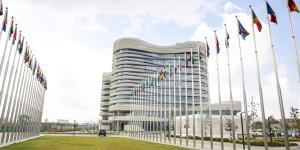
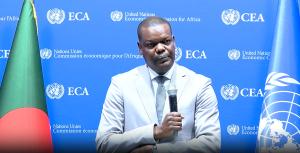

.jpg)

.jpg)
.png)
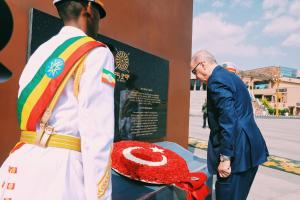
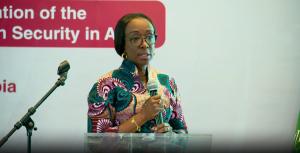
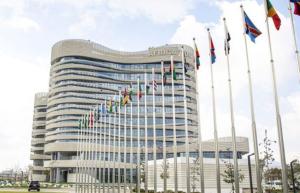
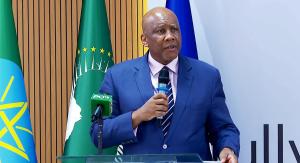
.jpg)
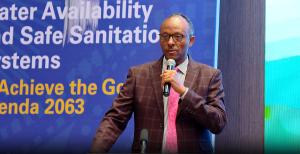
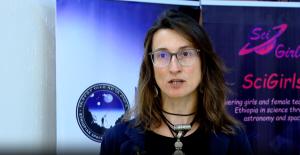
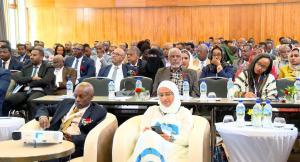

.jpg)
.jpg)
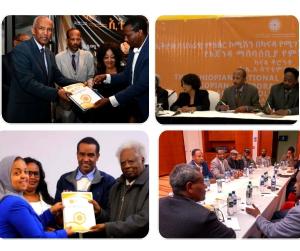
.jpg)